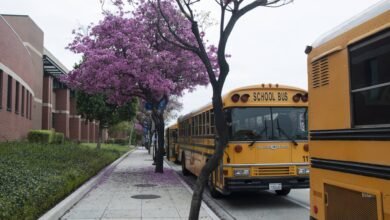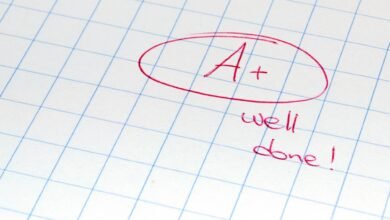
The idea of forcing children to learn a specific set of facts and topics is controversial. It runs counter to newer trends of “culturally relevant pedagogy,” or “culturally responsive teaching,” in which critics contend that students’ identities should be reflected in what they learn. Others say learning facts is unimportant in the age of Google where we can instantly look anything up, and that the focus should be on teaching skills. Content skeptics also point out that there’s never been a study to show that increasing knowledge of the world boosts reading scores.
It would be nearly impossible for an individual teacher to create the kind of content-packed curriculum that this pro-knowledge branch of education researchers has in mind. Lessons need to be coordinated across grades, from kindergarten onward. It’s not just a random collection of encyclopedia entries or interesting units on, say, Greek myths or the planets in our solar system. The science and social studies topics should be sequenced so that the ideas build upon each other, and paired with vocabulary that will be useful in the future.
The big question is whether the theory that more knowledge improves reading comprehension applies to real schools where children are reading below grade level. Does a content-packed curriculum translate into higher reading achievement years later?
Putting knowledge to the test
Researchers have been testing content-packed lessons in schools to see how much they boost reading comprehension. A 2023 study of the Core Knowledge curriculum, which was not peer reviewed, received a lot of buzz. The students who attended nine schools that adopted the curriculum were stronger readers. But it was impossible to tell whether the Core Knowledge curriculum itself made the difference or if the boost to reading scores could be attributed to the fact that all nine schools were highly regarded charter schools and were doing something else that made a difference. Perhaps they had hired great teachers and trained them well, for example. Also, the students at these charter schools were largely from middle and upper middle class families. What we really want to know is whether knowledge building at school helps the poorest children, who are less likely to be exposed to the world through travel, live performances, and other experiences that money can buy.
Another content-heavy curriculum developed by Harvard education professor James Kim produced a modest boost to reading scores in a randomized controlled trial, according to a paper published in 2024. Reading instruction was untouched, but the students received special science and social studies lessons that were intended to boost young children’s knowledge and vocabulary. Unfortunately, the pandemic hit in the middle of the experiment and many of the lessons had to be scrapped.
Still, for the 1,000 students who had received some of the special lessons in first and second grades, their reading and math scores on the North Carolina state tests were higher not only in third grade, but also in fourth grade, more than a year after the knowledge-building experiment ended. Most of the students were Black and Hispanic. Forty percent were from poor families.
The latest study
The Core Knowledge curriculum was put to the test in another study by a team of eight researchers in two unidentified cities in the mid-Atlantic and the South, where the majority of children were Black and from low income families. More than 20 schools had been randomly assigned to give kindergarteners some lessons from the Core Knowledge curriculum. The schools continued with their usual phonics instruction, but “read aloud” time, when a teacher ordinarily reads a picture book to students, had been replaced with units on plants, farming and Native Americans, for example. More than 500 kindergarteners looked at pictures on a large screen, while a teacher discussed the topics and taught new vocabulary. Additional activities reinforced the lessons.
According to a paper published in the February 2025 issue of the Journal of Education Psychology, the 565 children who received the Core Knowledge lessons did better on tests of the topics and words that were taught, compared with 626 children who had learned reading as usual and weren’t exposed to these topics. But they did no better in tests of general language, vocabulary development or listening comprehension. Reading itself was not evaluated. Unfortunately, the pandemic also interfered in the middle of this experiment and cut short the analysis of the students through first and second grades.
Lead researcher Sonia Cabell, an associate professor at Florida State University, says she is looking at longer term achievement data from these students, who are now in middle school. But she said she isn’t seeing a clear “signal” that the students who had this Core Knowledge instruction for a few months in kindergarten are doing any better.
Glimmers of hope
Cabell did see glimmers of hope. Students in the control group schools, who didn’t receive Core Knowledge instruction, also learned about plants. But the Core Knowledge students had much more to say when researchers asked them the question: “Tell me everything you know about plants.” The results of a test of general science knowledge came just shy of statistical significance, which would have demonstrated that the Core Knowledge students were able to transfer the specific knowledge they had learned in the lessons to a broader understanding of science.
“There are pieces of this that are promising and encouraging,” said Cabell, who says that it’s complicated to study the combination of conventional reading instruction, such as phonics and vocabulary, with content knowledge. “We need to better understand what the active ingredient is. Is it the knowledge?”
All the latest Core Knowledge study proves is that students are more likely to do well on a test of something they have been taught. Some observers errantly interpreted that as evidence that a knowledge rich curriculum is beneficial.
“If your great new curriculum reads articles about penguins to the kids and your old stupid curriculum reads articles about walruses to them, one of these is going to look more successful when the kids are evaluated with a penguin test,” explained Tim Shanahan, a literacy expert and a professor emeritus at the University of Illinois at Chicago who was not involved in this research.
Widening achievement gaps
And distressingly, students who arrived at kindergarten with stronger language skills absorbed a lot more from these content-rich lessons than lower achieving students. Instead of helping low achieving kids catch up, achievement gaps widened.
People with more knowledge tend to be better readers. That’s not proof that increasing knowledge improves reading. It could be that higher achieving kids like learning about the world and enjoy reading. And if you stuff a child with more knowledge, it’s possible that his reading skills may not improve.
The long view
Shanahan speculates that if knowledge building does improve reading comprehension, it would take many, many years for it to manifest.
“If these efforts aren’t allowed to elbow sound reading instruction aside, they cannot hurt and, in the long run, they might even help,” he wrote in a 2021 blog post.
Researchers are still in the early stages of designing and testing the content students need to boost literacy skills. We are all waiting for answers.




